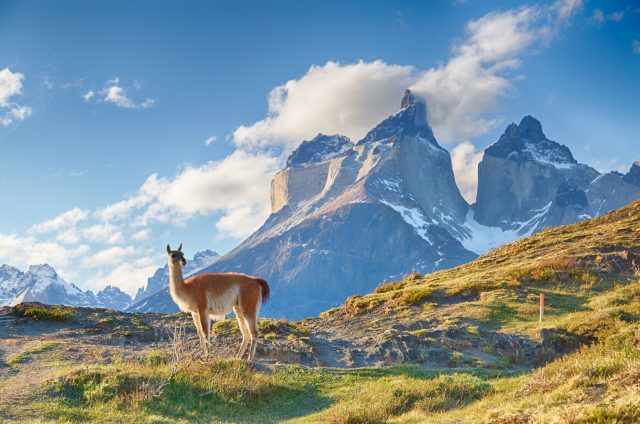This website uses cookies so that we can provide you with the best user experience possible. Cookie information is stored in your browser and performs functions such as recognising you when you return to our website and helping our team to understand which sections of the website you find most interesting and useful.
10 reasons to get excited about Chilean wine right now
Here are 10 reasons to get excited about Chilean wine in 2021, which have been drawn up following a tasting of more than 60 new releases from across the country.

Having sampled a broad range of Chile’s wines over the summer, following a similar tasting in 2020, I have picked out 10 key strengths to the country’s wine scene right now, which I’ve listed below.
Meanwhile, for a full report on the wines, including my tasting notes and scores, see the September issue of the drinks business, which can be downloaded here.
- Chile is a go to for eccentric wines, be it refreshing whites from the extreme south of the country (such as the Osorno-sourced Cordillera de los Andes Sauvignon Blanc) to the far north (Atacama’s Tara Chardonnay); delicious orange wines from ancient vines (LFE’s Macerao); and so much more – be it pink sparkling País (Miguel Torres Santa Digna Estelado) or a fine pale dry rosé from Touriga Nacional (Château los Boldos, Specialty Series).
- Chile is becoming a serious force for sparkling wine, with outstanding, age-worthy, traditional method fizz at the top – such as Tabalí / Champagne Thienot’s tie-up to produce Tatié, using Chardonnay and Pinot Noir from Limarí. At prices closer to Prosecco territory, especially good-value fizz can be found with the sparklings from Valdivieso – including a new pink one using Cinsault from Itata, called Éclat Brut Rosé.
- Chile is is bringing the world something new, ripe and refreshing with old vine Semillon, primarily from Apalta, such Aresti’s Trisquel Series and Carmen’s D.O. Quijada.
- Chilean Malbec offers an increasingly delicious alternative to Mendoza, with those from Colchagua and Curicó in particular impressing for their structure, spice and concentration (Aresti’s Trisquel Series and La Ronciere’s Licantén Idahue Estate).
- Organic wines are a growing strong point in Chile’s varied offer, led by Emiliana – a producer of scale and quality from Concha y Toro’s Guilisasti family – and boosted by the brilliant and innovative output from Viña Koyle.
- Chile’s Pinots are some of the best value examples on the planet: juicy, bright, and delicate (lead by Cono Sur’s Bicicleta/organic). The top end, too, with this grape is increasingly refined, using fruit from Limarí (Tabalí’s Talinay Pai), Leyda (Lot 21) and Casablanca (Veramonte, Ocio).
- Chile’s Chardonnay is now seriously fine, be it from Aconcagua (Las Pizzaras) or Casablanca (Veramonte), and particularly from Limarí, where the wines are distinctive and delicious, with intensity and elegance, even a chalky freshness (Amelia and Undurraga T.H.).
- Some of Chile’s greatest wines are made with Syrah. This grape is performing brilliantly in the country’s granitic soils to yield reds with masses of colour, intensity, and spicy, floral interest. Try Leyda’s Undurraga T.H. Syrah, Colchagua’s LFE900, and Zapallar’s Montes Outer Limits.
- Emblematic grape Carmenère is the source of a rising number of fine wines, both in a blend and as a varietal expression. Peppery, fleshy reds of distinction can be found from across Chile. Plus it’s an offer that’s unique to the country, with high points found in Apalta (Lapastolle’s Clos Apalta, Ventisquero’s Obliqua and Santa Rita’s Pewën de Apalta) and Peumo (Terrunyo).
- Finally, Cabernet Sauvignon, along with Cabernet Franc, is yielding wines of class and quality at surprisingly affordable prices, along with blockbusters at the luxury end of the scale. While the high Maipo terraces yield some of the top expressions – capped by Almaviva – it’s not the only source of great Bordeaux blends: Aconcagua (Seña, Don Maximiano), Colchagua (Viña Maquis) and Cachapoal (Viña Vik) are all able to produce complex, concentrated and balanced results with inimitable traits.

